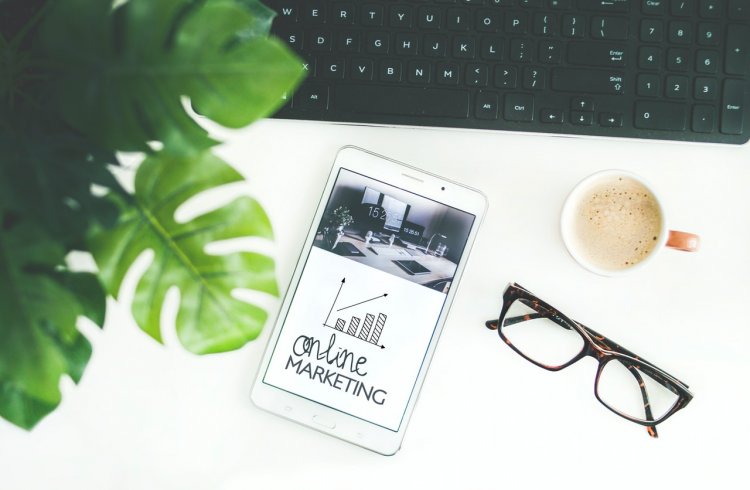The Covid-19 pandemic has accelerated the adoption of digital solutions and processes of businesses from all over the globe.
According to survey results1 released by tech giant Microsoft and market research firm IDC Asia Pacific, 73% of Singapore organisations are accelerating the pace of digitalisation in response to the pandemic.
In the report, Singapore business decision-makers selected that the ability to innovate is vital to the performance and resilience of their businesses. If small and medium-sized enterprises (SMEs) don’t adapt and adopt digital technology in their marketing strategies—then they are doomed to be left behind.
As a business owner who has been thinking to market your products digitally, it is easy to be overwhelmed by the myriad of digital solutions available in the market. You might have constantly heard the terms ‘digital marketing’ and ‘performance marketing’ being used together and sometimes interchangeably. However, there is a significant difference between these terms.
Performance Marketing vs Digital Marketing
What sets them apart?
Firstly, digital marketing is marketing that utilises online channels. Whereas performance marketing is a type of digital marketing that uses a payment model in which the client would only complete the payment transaction when the desired outcome is achieved.
Secondly, digital marketing, which is sometimes referred to as online or Internet marketing, is a generic term that encompasses a myriad of payment models, channels and strategies. On the other hand, performance marketing can include optimizing various strategies and channels. However, the critical point is that strategy would be defined by the payment model that was agreed upon.
Thirdly, the campaign goals for a performance marketing strategy would generally be in the shorter term. Compared to the goals set for digital marketing, performance marketing goals typically focus on easy-to-measure metrics such as the number of leads generated.
As an SME owner, the next step is to determine which approach best suits for the business. And the answer will ultimately depend on the business goals, culture, and marketing goals that the brand wants to achieve.
What are the benefits of Performance Marketing?
There is a long list of reasons to embrace performance marketing, but three reasons rise to the top:
Transparent, Measurable and Trackable. With performance marketing, it is easy for businesses to track the entire click-to-consume path of each user. This helps identify which marketing channels can produce better results for their brands and where the brands can invest in more.
Agile across various marketing channels. The performance marketing approach is versatile. This quality helps to adapt the marketing strategy to reach and retarget their intended audiences. While testing the message across various marketing channels, business owners can have a comprehensive view of their campaign’s performance. This information can be utilized to finesse the marketing plans and achieve the desired results.
Pay As You Go. Performance marketing is paid after the desired action occurs rather than paying the total amount in a lump sum. For SMEs, this model would be a sensible choice. This model would mean that the Cost Per Acquisition (CPA) and risks are lower while the Return on Investment (ROI) higher.
Ultimately, if you want to measure results and get them fast, performance marketing would be a great strategy.
Just ask Suin Nguyen, founder of Suin Beauty Lounge, how she regained her momentum after her business was hit hard by the pandemic crisis.
Suin Beauty Lounge is an example of a traditional business that made the jump on the digital bandwagon. Located along 40 Arab Street, it is a beauty salon that offers skin care treatments ranging from facial treatments to mani-pedis and eyelash extensions.
Like many brick and mortar salons, her business was severely affected when the number of walk-in customers drastically declined due to Covid-19 restrictions. Since she traditionally depended on the walk-in customers from tourists and word-of-mouth referrals for sales, Suin admitted that same strategy nearly foiled her business. Added to the fact that her business lacked a strong branding and online presence, she experienced a 30% drop in her overall revenue.
Pushed to a corner, she desperately turned to a performance marketing agency to revive her business. Through implementing performance marketing campaigns, she optimized her sales performance to bring in results and maximise the outreach to potential customers.
Her business has since seen a 40% increase in revenue growth with 30% of her customer profile being new clientele. She was also able to grow her team and add three more beauty therapists.
However, no matter where your brand stands in the Performance marketing arena, there is always room to improve and grow.
Business owners should first outline their goals clearly and select their preferred marketing channels to target.
And along the way, business owners will have to track, measure and optimize the performance of the strategies that they have selected.
Regardless, the choice to persist or to change depends if the performance marketing strategy will meet the desired outcomes.
With the right performance marketing channel, business owners will be able to efficiently reach out to their target audiences.

















